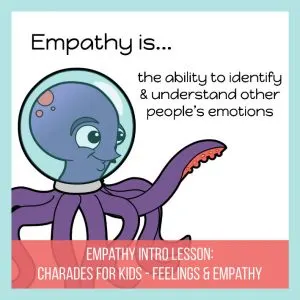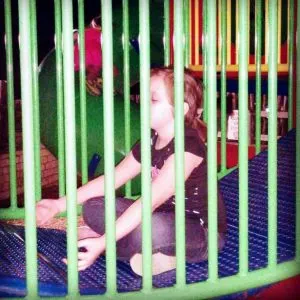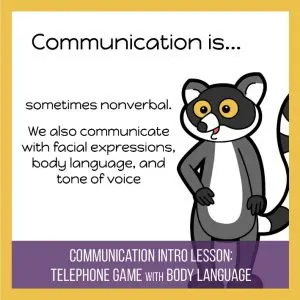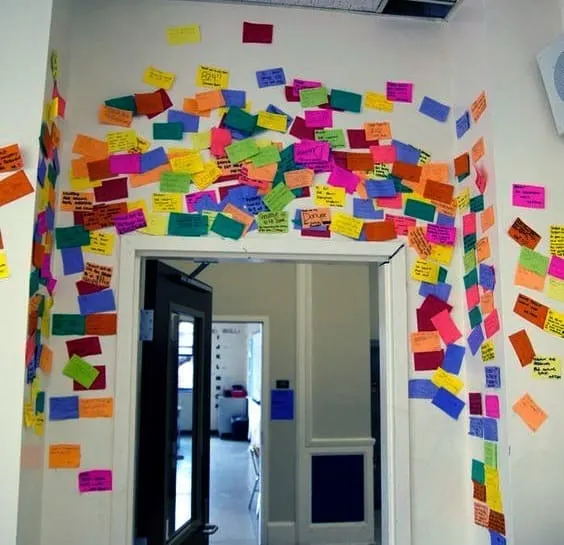The powerful ways Social Emotional Learning games can help your child
I think you’ll agree with me that the world our kids are growing up in today is different from when we were kids.
Social media, bullying, cyber-bullying, and other challenges can wreak havoc on our kid’s emotional regulation.
Maybe your child already struggles with being bullied, or has been accused of bullying?
Perhaps your child has issues with mood swings, temper tantrums or similar behavior we might describe as acting out? Maybe they seem to lack gratitude for all they are given?
We see the pain in them. As parents, we’re desperate to fix our kids. As our kids’ struggle at school, especially in social settings, it can be heartbreaking.
As a parent of 3, I can tell you I’ve been there! There is help and there are things you can do to make a difference in the lives of your kids!
Social-emotional learning or SEL is simply a process, or system, which teaches kids how to self-regulate their emotions. Kids learn crucial skills like empathy and how to make more responsible choices.
In this post, we’re diving deep into the origins of SEL.
We’ll also have some printables available below and walk through some simple games you can use daily with your kids.
Social emotional learning games can help restore balance to your kid’s lives and to your household. Let’s dive in!
Who created social emotional learning?
The origins of SEL can be traced back to Daniel Goleman, author of (among many books) Emotional Intelligence: Why It Can Matter More Than IQ.
In that book, as with SEL, Goleman decries the notion that learning rational skills (math, English, science, etc) and learning emotional skills are unrelated. Social Emotional Learning incorporates teaching kids social & emotional skills into their “normal” classroom curriculum.
“In a very real sense we have two minds, one that thinks and one that feels” ― Daniel Goleman pic.twitter.com/5HQgRI3D7w
— Belinda MJ Brown (@BelindaMJBrown) April 16, 2017
Goleman and a group of educators dedicated to helping our kids and elevate our school system formed the Collaborative for Academic, Social, and Emotional Learning (CASEL). Their goal is nothing short of transforming the style, methods, and curriculum of our school system into something that puts our children at the top of the priority list.
The terrible truth about our school system
Thanks @toonaprincipal for great reminder from @SteeleThoughts to start week. Kids matter – and they notice everything we do! #ccsdintech pic.twitter.com/CKSwTA9iyL
— Leah Kurtz, Ed.S. (@leahkurtz2012) April 17, 2017
We can’t count on the school system to provide everything our kids need to succeed in life.
My kids go to a great school. In fact, we’ve been fortunate that all the schools they have attended have been good or great. But many schools are not. Many have challenges.
Did you know that 67% of all Grade 4 students cannot read at a proficient level! According to the National Assessment of Educational Progress, of that 67 %, 33% read at just the BASIC level, and 34% CANNOT even achieve reading abilities of the lowest basic level!

According to the National Center for Education Statistics, I see the following items of concern:
- In 1 year, there were 53 deaths at elementary and secondary schools across the US
- While 11 of those were suicides, the rest were violent actions against others
- The rate of violence against kids at school is roughly 4 in 1000
- 65% of US schools reported recently that one or more violent incidents had taken place
- That amounts to over 750,000 incidents in one year!
In short, using social emotional learning games will help our kids learn better. But, perhaps, more importantly, teaching social emotional learning games to kids might make the difference in keeping our kids safe from harm.
Whether it’s September or January or not, if your child is struggling at school (or even if you think they might), I highly recommend you take a moment and check out my Top Back to School Tips. Its usually my most shared post in August.
Our world is different today, so we need to teach our kids differently
Obviously, not all the violence in our schools is derived from a lack of social emotional learning games, but our children are growing up in a much more challenging world than we did.
When I was 10, the age of my oldest daughter, we didn’t have metal detectors in school.
There weren’t kids posting half naked pictures of one another on Instagram. No one was tweeting about how dumb another student was. I rode my bike and did my homework. Maybe I came home and found something to watch on TV (and, gasp, had to get up to change the channel (oh the horror!)).
Our kids live in a much different world today. Thus teaching them the same way I was taught doesn’t make sense. In my daughter’s school, we use an SEL program called the 7 Mindsets which help address these issues.
In this video, you can listen to yours truly explain both my role in helping at our school but also the importance of the mindsets in the learning environment.
The Amazing ways Social Emotional Learning Games transform our kids
Social emotional learning games help instill the following qualities:
- Impulse control
- Cooperation
- Communication
- Empathy
- Self-esteem
- Gratitude
“I follow three rules: Do the right thing, do the best you can, and always show people…”~Lou Holtz #inspiration#7mindsets#empowermentpic.twitter.com/bgD9YSMblm
— 7 Mindsets (@7Mindsets) April 21, 2017
As parents, we can’t just expect our schools to do everything.
We have to take an active role in our kid’s development, both intellectually as well as emotionally. Self-esteem issues are at the root of many of the challenges kids face today. Social emotional learning games can certainly help with that.
Intrinsic motivation is the key
What is intrinsic motivation? Its when a child learns to value themselves from their own inner feelings of accomplishment instead of exclusively looking to others for validation.
I address intrinsic motivation vs extrinsic more in a previous post called 9 Amazing Self-Esteem Building Exercises for Your Kids. If your child struggles specifically with self-esteem issues, I highly recommend checking that out. In it, I walk you through some very simple and actionable steps you can take to boost self-esteem in your child.
It’s our job to help develop our kids into self-sufficient, productive, kind and mature human beings; the kind of person that’s going to go out there and make the world a little bit better than they found it.

All around us we’re inundated with terrible news. Everyone’s shouting about why their side is right and the other is wrong. What if we just celebrated our similarities more and pointed out our differences less?
Maybe we just accept and embrace one another for who we are instead of expecting the world to bend to our will?
OK, that was me on a bit of a soapbox, but the world needs more love; more kindness and empathy. Raising kids better is the key. And utilizing social emotional learning games can play a huge role in helping humanity make it to the next level.
So now I bring you, having scoured the web, the . . .
9 Powerful Social Emotional Learning Games for Your Child
1. CHARADES – Kids learn to understand others through non-verbal cues
 – clickable link with print outs!
– clickable link with print outs!
2. PIN THE MOOD ON THE PICTURE
Have cards you print with different moods taped to the wall or on a flat surface. For young kids ideally start with just “happy” and “sad” but the older the child, the more you can go deeper into moods like “angry”, “scared”, “insecure”, etc.
Print (or cut out of magazines) a bunch of pictures of people feeling different emotions
Have the kids try and “pin” the pictures to the corresponding moods
3. A VARIATION ON RED LIGHT/GREEN LIGHT – Kids learn to curb impulse control
![]() – clickable link with print outs!
– clickable link with print outs!
4. WRITE DOWN & RIP UP – Kids learn to understand, express & release tough emotions
Have your kids write down on individual pieces of paper what their fears, insecurities, and stresses are. Have them be specific. Then have them rip up the paper and throw them away.
This exercise is designed to help them understand and express their feelings. But it also helps them understand that they are the one truly in control of their emotions.
5. MEDITATION – Kids learn to self-regulate themselves
It’s really never too early to teach kids to meditate. Yes, at certain ages you may get pushback or kids who won’t take it seriously. But, the ability to focus our mind, become more present to the people and surroundings we’re close to is a vital skill!
Our world can be chaotic. It can overwhelm the senses. Technology, designed to make our lives easier, can easily make us more distracted. Life’s stresses and distractions can overwhelm even the most grounded adults, so how do you think our kids handle it?
To teach meditation to kids, you don’t want to do it for long periods. 3 to 5 minutes is perfect. Have them in a crisscross seated position and simply ask them to close their eyes and focus on their breathing.
Here’s a shot of my oldest daughter, then 9, who decided to meditate for a few minutes on a playground that was swarming with high energy kids that were sapping her sense of calm.

6. TELEPHONE GAME – Kids learn communication skills but also how to read verbal cues
Try this game the traditional way where 1 kid says a phrase to another and then compare to the original phrase when it gets to the end. Then try the game again with a new phrase where kids cannot use words.
 – clickable link with print outs!
– clickable link with print outs!
7. SHOUT OUT WALL – Kids learn to value themselves and others
Have your kids use post-it notes in a certain area. On them, they should write one or more things they have accomplished that they feel good about. But for every post-it, they write they also need to write one for someone else.
This simple technique helps kids identify their own accomplishments. But it also helps them recognize and feel gratitude for other’s accomplishments. This has the net effect of reducing jealousy between siblings or peers. It also helps foster appreciation for one other and also improves their own feelings of self-worth.

8. HAPPY & SAD DINNER SHARING – Kids learn to understand their own feelings and feel empathy towards others
At the dinner table each day, start by sharing 1 thing that made you happy that day. Then share 1 thing that made you sad and/or angry. Then go around the table and have everyone share 1 item from each category.
This exercise will help kids better understand their own feelings. But it also helps foster understanding and empathy towards others.
9. MAGIC WAND – Kids identify what they would change if they could and then begin to realize steps they can take to do just that
Ask your kids to say 1 thing they would change if they had a magic wand. Have them be:
- Realistic (no trips to Mars or wishing they could levitate)
- Specific about themselves (I wish I could play the piano)
- Positive (no wishing you could beat someone up, etc)
Then once everyone has had a turn, ask them what would it take to achieve that. Have them write down 3 to 5 steps needed to get to their stated goal. Then ask them what is preventing them from starting on those baby steps.
This helps them realize that most goals are achievable if they just break down the goal into baby steps and just take it one step at a time. Kids learn patience, goal setting, and an understanding that they can do whatever they set their mind to. We are not victims!
Final Thoughts
In this post, we took a hard look at our educational system overall and the impact it has on our kids.
Our kids live in a different world today than when we were kids. Thus finding ways to incorporate social emotional learning into their lives is crucial for their emotional development and regulation.
Specifically, though, we looked at social emotional learning games and how easy it is to add some of these to your daily routine.
What do you think about our education system?
These are tips you can come back to time and time again! Why not save this pin to your favorite Pinterest boards so it will be there when you need it? I update it frequently too!
Middle Class Dad is a participant in the Amazon Services LLC Associates Program, an affiliate advertising program designed to provide a means for sites to earn advertising fees by advertising and linking to Amazon.com. As an Amazon Associate, I may earn a small commission from qualifying purchases if you click to Amazon from my site and choose to make a purchase. This is no way increases the cost to you.
- Sagittarius Man & Gemini Woman Love and Sex Compatibility - January 31, 2024
- Taurus Ascendant Rising Personality Traits in Men (Guide) - January 31, 2024
- How to Seduce and Attract a Sagittarius Man (Seduction Tips) - January 31, 2024
